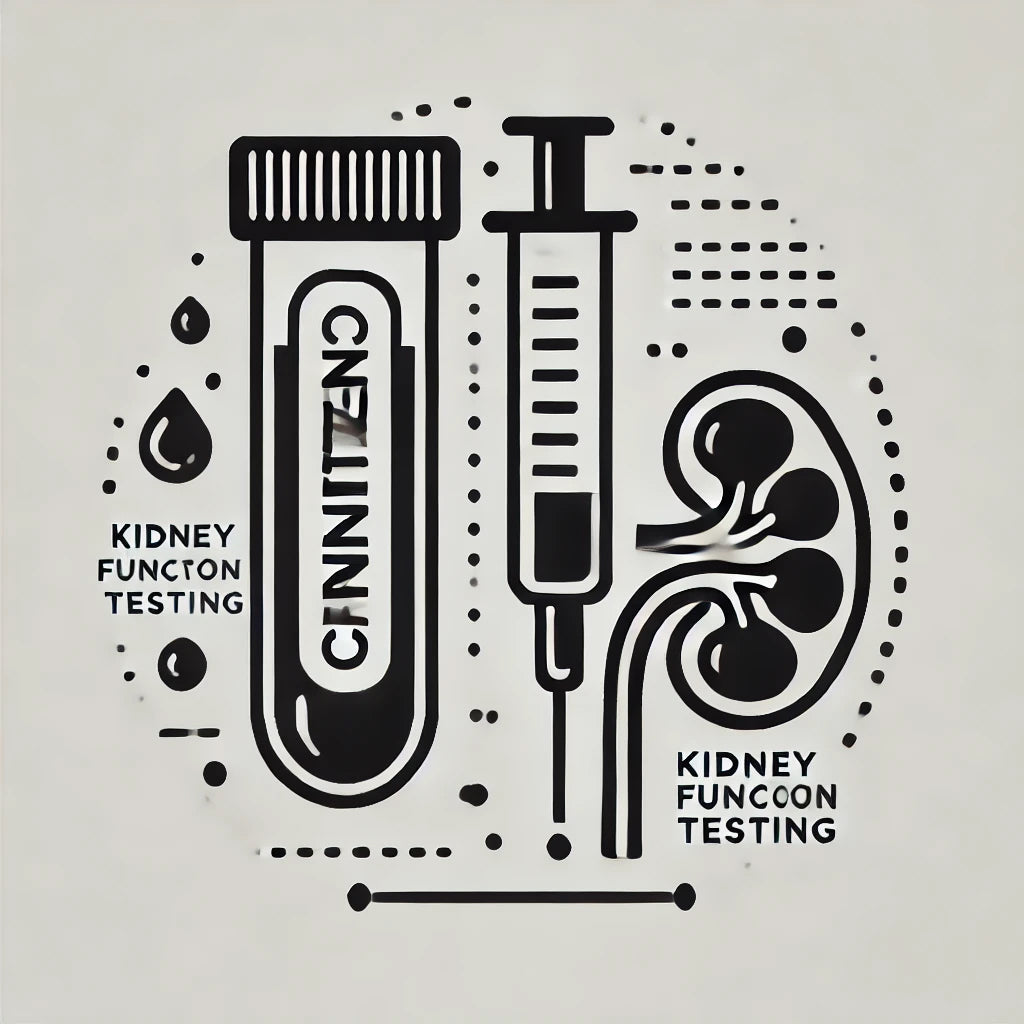
Creatinine Testing: Importance, Methods, and Interpretation of Results
Share
What Is Creatinine?
Creatinine is a waste product produced by muscles during metabolism. It is filtered by the kidneys and excreted in urine. Measuring creatinine levels in blood or urine helps assess kidney function and detect potential health issues.
Why Is Creatinine Testing Important?
A creatinine test is commonly used to:
Evaluate kidney function – Elevated creatinine levels may indicate kidney disease or impaired function.
Monitor chronic conditions – People with diabetes, high blood pressure, or kidney disease need regular creatinine testing.
Assess muscle disorders – Since creatinine originates from muscle metabolism, abnormal levels may signal muscle disorders.
Types of Creatinine Tests
There are two main types of creatinine tests:
Serum Creatinine Test
Measures creatinine levels in the blood.
Often used to estimate the glomerular filtration rate (GFR), which reflects kidney function.
Urine Creatinine Test
Evaluates how much creatinine is excreted in urine over 24 hours.
Sometimes used to calculate creatinine clearance, a more precise indicator of kidney efficiency.
Understanding Creatinine Test Results
Normal creatinine levels vary based on age, sex, muscle mass, and health conditions:
Men: 0.7–1.3 mg/dL
Women: 0.6–1.1 mg/dL
Children: 0.2–1.0 mg/dL
High creatinine levels may indicate:
Kidney disease or failure
Dehydration
High protein intake
Muscular disorders
Low creatinine levels may be linked to:
Muscle loss
Malnutrition
Liver disease
Who Should Get a Creatinine Test?
You may need a creatinine test if you experience:
✔ Swelling in legs, ankles, or around the eyes
✔ Frequent urination
✔ Fatigue and weakness
✔ High blood pressure
✔ Unexplained weight loss
How to Prepare for a Creatinine Test
Fasting is usually not required, but your doctor may advise avoiding high-protein foods or creatine supplements before the test.
Stay hydrated, as dehydration can affect test results.
Inform your doctor about any medications, including antibiotics or nonsteroidal anti-inflammatory drugs (NSAIDs), that might impact kidney function.
Conclusion
Regular creatinine testing is crucial for detecting kidney issues early and managing chronic diseases. If you have risk factors such as diabetes or hypertension, consult your doctor about routine kidney function tests.
Optimize your health today with a simple creatinine test!
